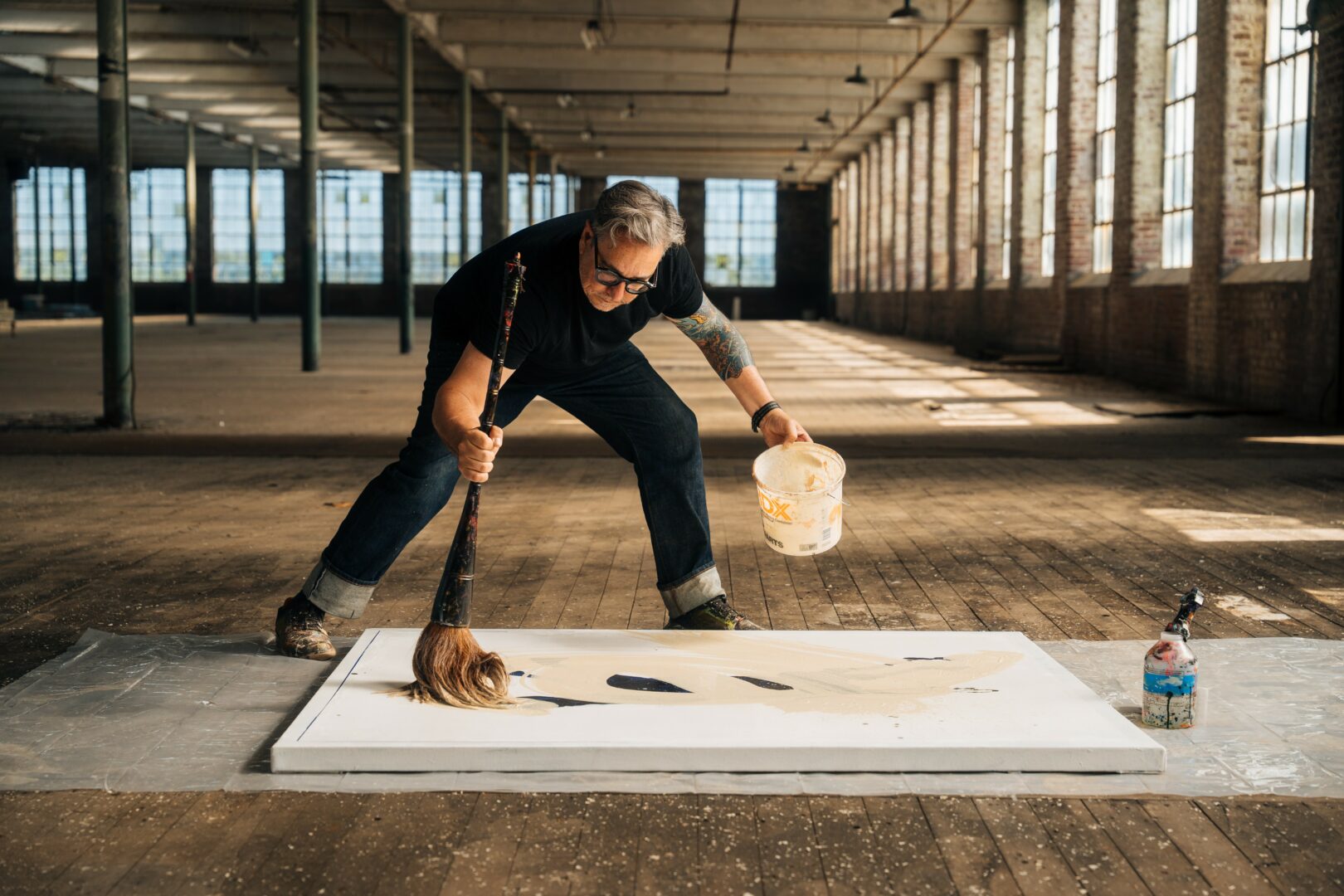Christopher Rico shared their story and experiences with us recently and you can find our conversation below.
Hi Christopher, thank you for taking the time to reflect back on your journey with us. I think our readers are in for a real treat. There is so much we can all learn from each other and so thank you again for opening up with us. Let’s get into it: Who are you learning from right now?
Right now, I am learning from a host of dead artists (Rubins, Delacroix, Bacon). I’ve been caught up in the fleshiness and gestures of these painters and the surprising moments zooming in to their works. I started more figurative works last year and I’m trying to find balance between the more “pure” abstract work I was doing previously with the newer horse paintings. I think the remainder of the year will be that journey, and I think a visit to the Met is probably imminent.
Can you briefly introduce yourself and share what makes you or your brand unique?
My name is Christopher Rico and I’m a painter based in Greenville, South Carolina. I grew up all over the country because my father was in the military, but I’ve been in SC for twenty years. I was always drawn to art but I didn’t really find myself as an artist until my late 20’s. I’ve taken some foundation classes, but I don’t have a degree in art; I’m an autodidact in that I’ve really taught myself how to paint and spent a lot of time figuring out what I care about in my art.
I’ve been fortunate in that I’ve been represented and exhibited in NYC and other large cities. Early in my career I worked with modern dance companies and created installations/environments for performances. I enjoyed that because the art was immersive in a very specific way. I think my work tells stories and offers worlds to the viewer. I tend to create some sort of narrative around a body of work and sometimes it begins there and other times I discover it after several paintings. It’s less a theme than a poem, or maybe a parable. Sometimes the stories are unfinished intentionally so that the audience has to find the ending themselves. All of my work contends with myth, archetypes, ritual, or the primordial in some way.
About a decade ago I found these huge Asian calligraphy brushes that now use almost exclusively. The biggest one I have is around 5 feet, with a brush head that is over a foot. They convey a lot of energy and movement in the work and I tend to work with very fluid paints which run and pool and drip, and I incorporate those qualities into my technique.
Okay, so here’s a deep one: Who saw you clearly before you could see yourself?
One of the first people who truly saw me was my high school theatre teacher, Mrs. Howe. She’s no longer with us, but I remember moving to a new high school for my 11th grade year in this small town in Kansas. My father had been transferred and I was angry and unhappy and lost. She literally put a paint brush in my hand and told me to paint a set and go fucking nuts. I spent an entire day on this mural-sized wall, just slinging and pouring paint. It got painted over the next day but I didn’t care. That experience unlocked something inside me and she was this motherly figure who told me it was going to be okay, that there was nothing wrong with me despite the fact that most of the people around me believed otherwise. I think of her often, because what she really gave me was radical, unconditional acceptance. I was able to give that to my children much later in life because of her.
Good teachers are sent from a divine realm and they should be treated as such. This woman changed the trajectory of my life, which at the time was heading for prison or some other very hard life. It’s a miracle that our paths crossed. Chance, destiny whatever, it really doesn’t matter. She was put in my path for a reason. I think it was the first seed of accepting that I was an artist even if it wasn’t clear at the time.
When did you stop hiding your pain and start using it as power?
One of the most important things about being an artist is that it teaches one to live with failures and not be defined by them. Whether they are relatively low key failures within a painting, or rejection by a gallery or juried show, if you’re actively trying to get your work out there, you are hearing “no.” The first few dozen rejections hurt a lot. I internalized them. I wrapped them around me like a blanket and kept my depression and low self esteem warm and protected. After a time, slowly, each hurt a little less. The first rejection letters had me down for a week, then days, then hours. Today there’s that momentary sting and I move on.
Within the last few years I’ve excavated some early childhood pain in my work and today I do feel powerful. I survived religious trauma and spiritual abuse, but now I no longer focus on the pain of the past. I am able to see myself as still here, still standing, still moving forward and growing. I can acknowledge that I was hurt by a certain segment of people and that people like them are undeserving of trust. I’m empowered to speak out in my art today in ways I have never been previously.
Contemporary discussions about trauma veer dangerously into defining oneself as a victim, when I think it’s far more productive to define oneself as a survivor. The latter connotes strength, resilience, and power. Whatever you’ve been through, you made it. It’s in the past. I think our lives, all the things that happened to us and all the things we happened to are part of our stories. We can draw from past pain to motivate ourselves to learn and grow.
We have the choice of what to carry in this life. I’m not suggesting that people forget their past, especially if it was painful. But things get heavier the longer one carries them. For my part, I prefer to travel light and let go. I don’t hide from my past. I make the decision to move forward.
Sure, so let’s go deeper into your values and how you think. Is the public version of you the real you?
Growing older can be liberating. I used to have a persona that protected me from the outside world and especially being in the arts I felt I needed an avatar. More and more I find myself truly unconcerned with what anyone else thinks. I don’t put on a mask anymore. This is me, and I happen to think this person is a decent, interesting, fun, compassionate human being. I’ve long made peace with the fact that I am not for everyone because I’ve examined my life and accepted myself. It makes relationships easier, and frankly, it makes making new friends easier. What you see is what you get. I have dark corners and layers, of course, but to answer the question, yes, my public version of me is truly me.
Okay, we’ve made it essentially to the end. One last question before you go. If you knew you had 10 years left, what would you stop doing immediately?
I love this question because I think about it all the time. I’ve been asking myself this question for 20 years and slowly eliminating the things I would list. Today, I think that list is down to almost nothing. I’m so fortunate to be doing what I feel I was born to do, and what I love to do. I think the big thing is to continue on the journey of not caring what others think and focus on the people and things I find most important. It’s a waste of time and life to worry about what people think of you. My advice is to go to two of your closest friends and ask them what they think of you. That’s all you need to know. If those closest to you think you’re pretty great, do yourself a favor and believe them. Let everything else go.
I’m at a stage in my life where striving is no longer attractive in its own right. I have goals, I have things I want to do of course. But I’m not in a hurry. I’ve let that go. I’d tell younger people who feel they have nothing but time to slow down. First, you never know how much (or how little) time you have and second, rushing towards some plan or career won’t make it get here faster or necessarily be more satisfying. More people should ask themselves this question, and more importantly, make decisions based on the idea that you may only have 10 years.
Contact Info:
- Website: https://www.christopherrico.com
- Instagram: @christopherricoart
- Linkedin: https://linkedin.com/in/christopherricoartist
- Other: The Rico Act on Substack: https://christopherrico.substack.com
Artsy: artsy.net/artist/christopher-rico
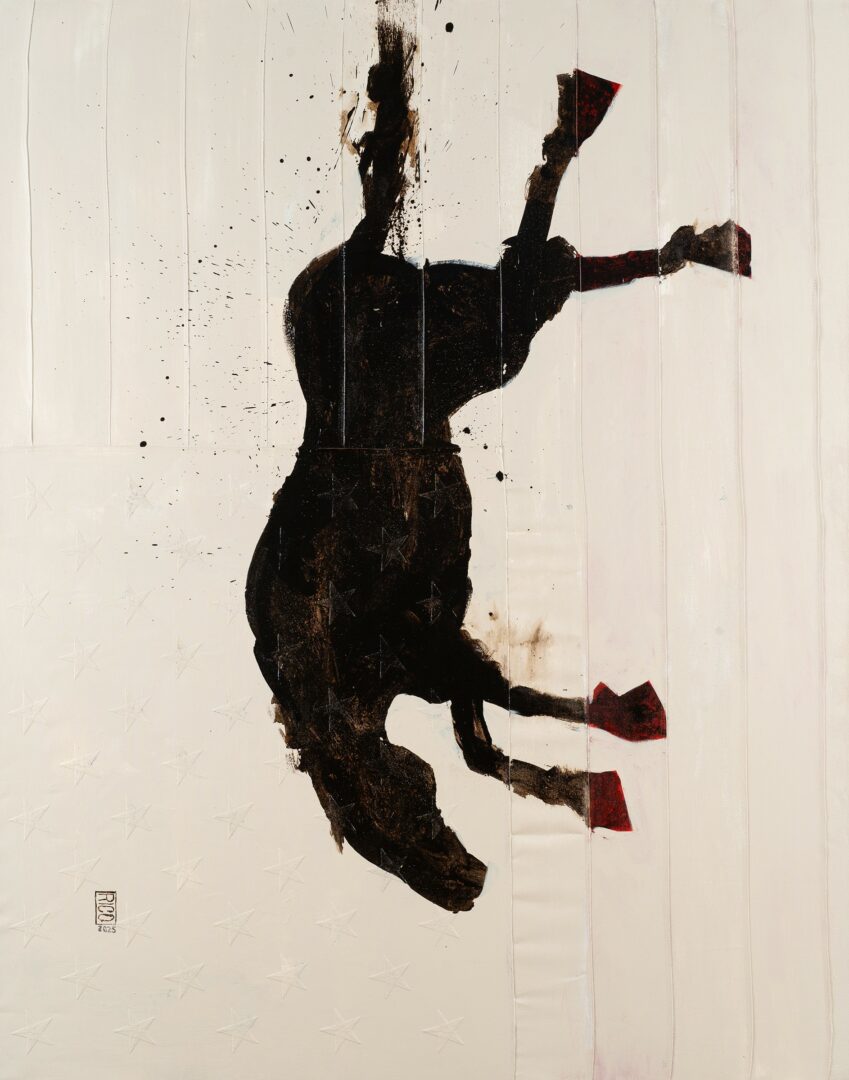
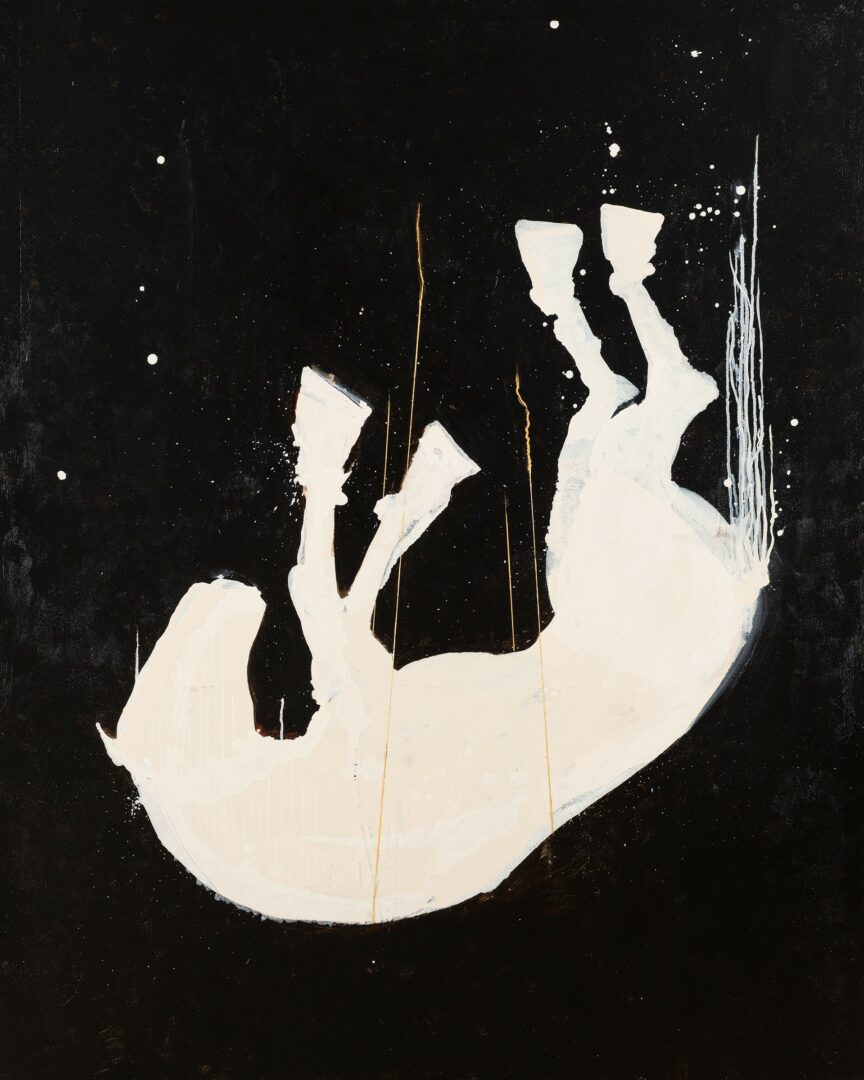
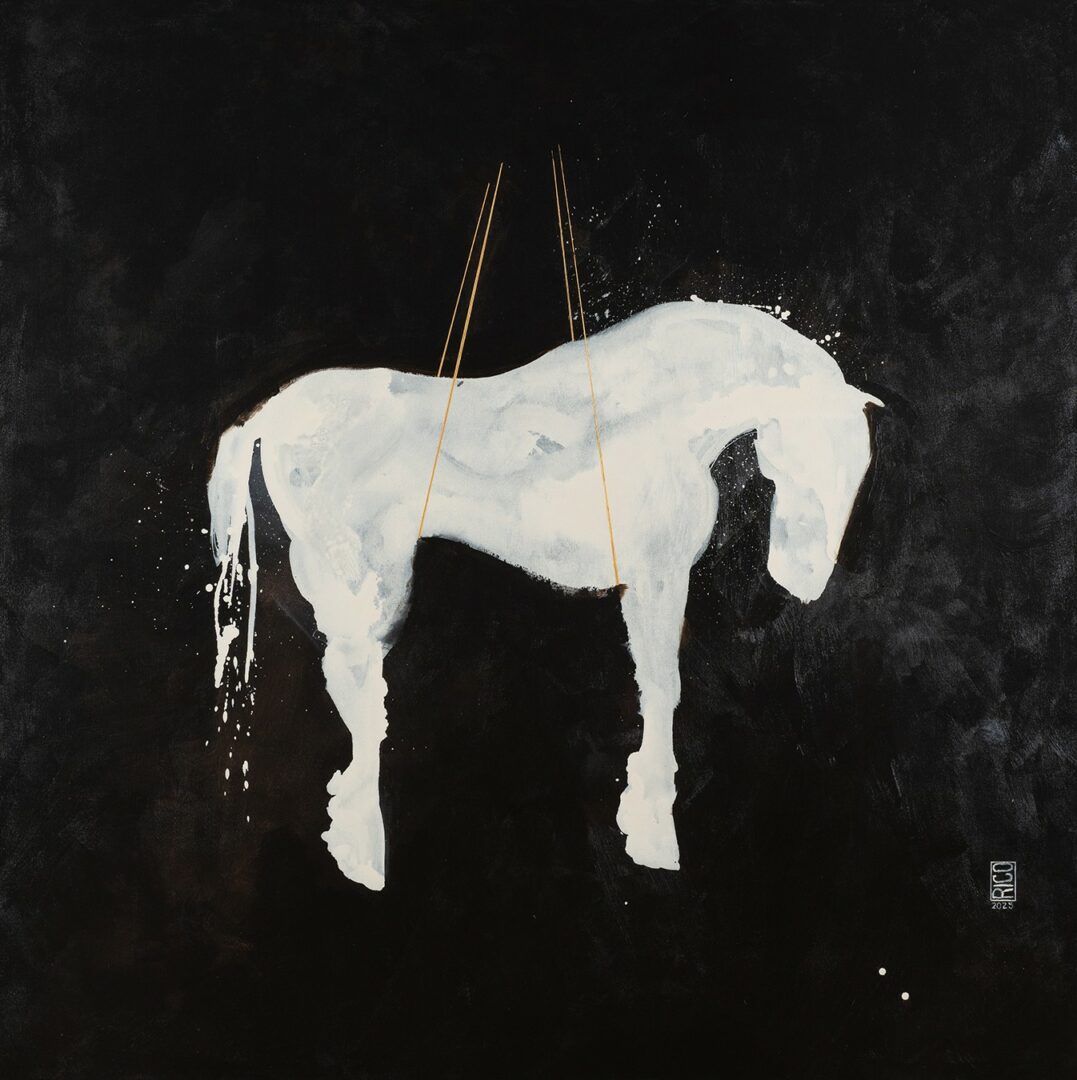
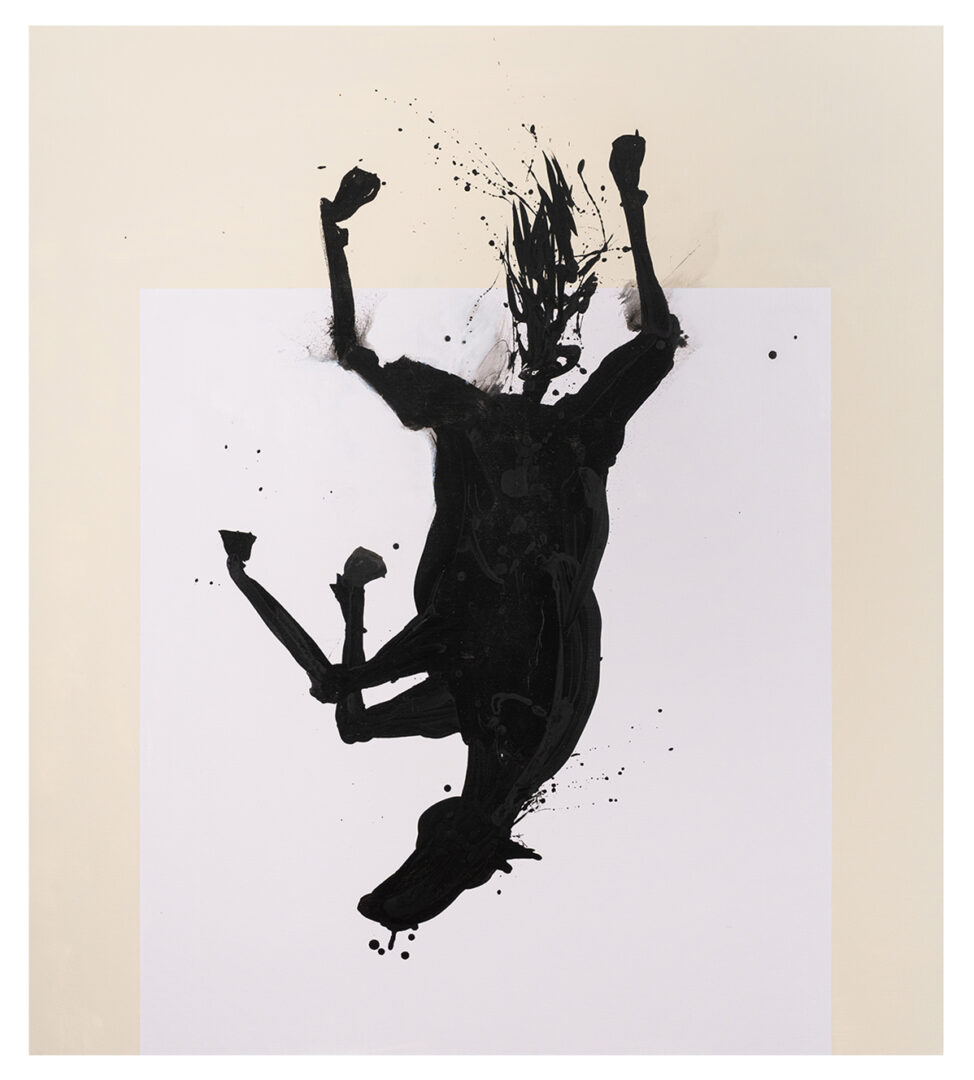
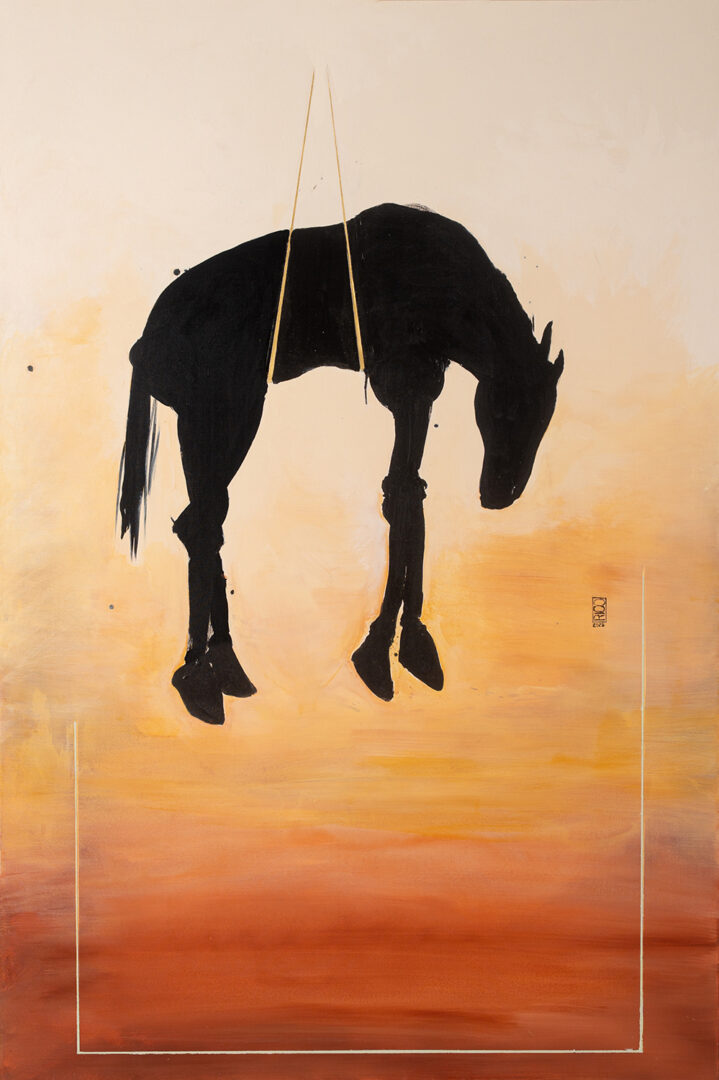
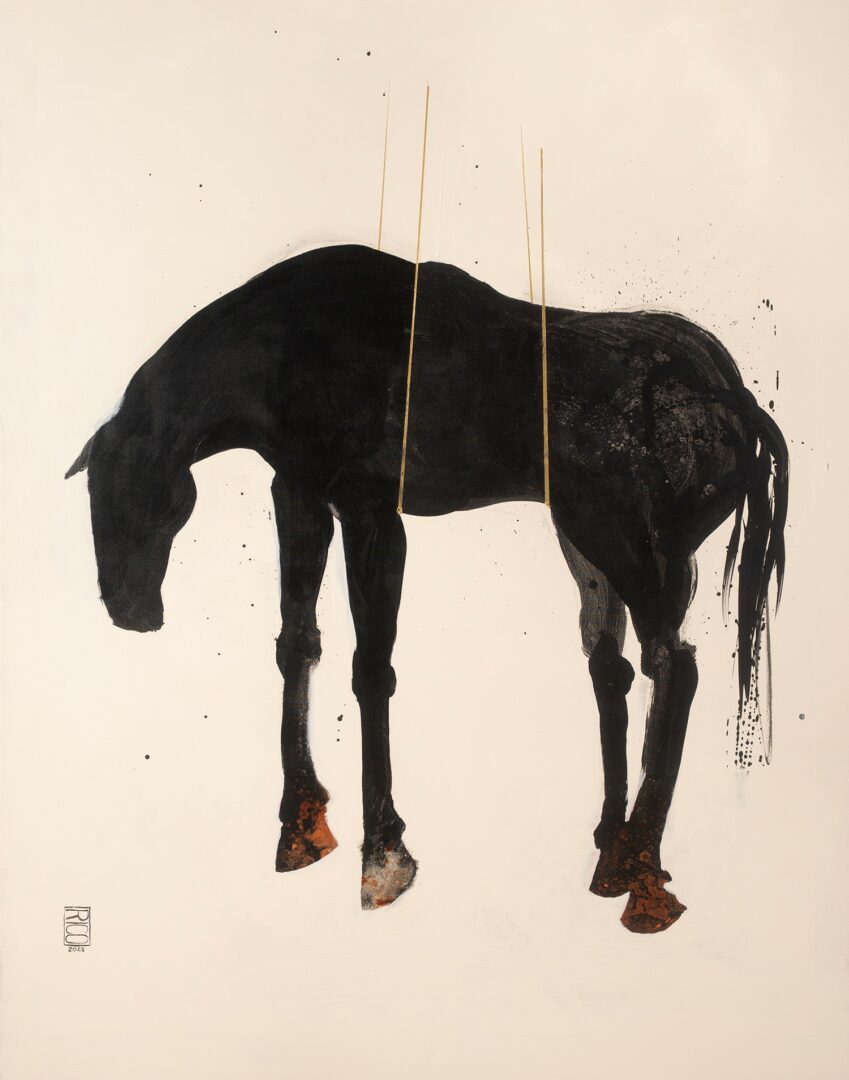
Image Credits
Studio portrait – Will Crooks
Painting documentation – Eli Warren and Will Crooks
so if you or someone you know deserves recognition please let us know here.

